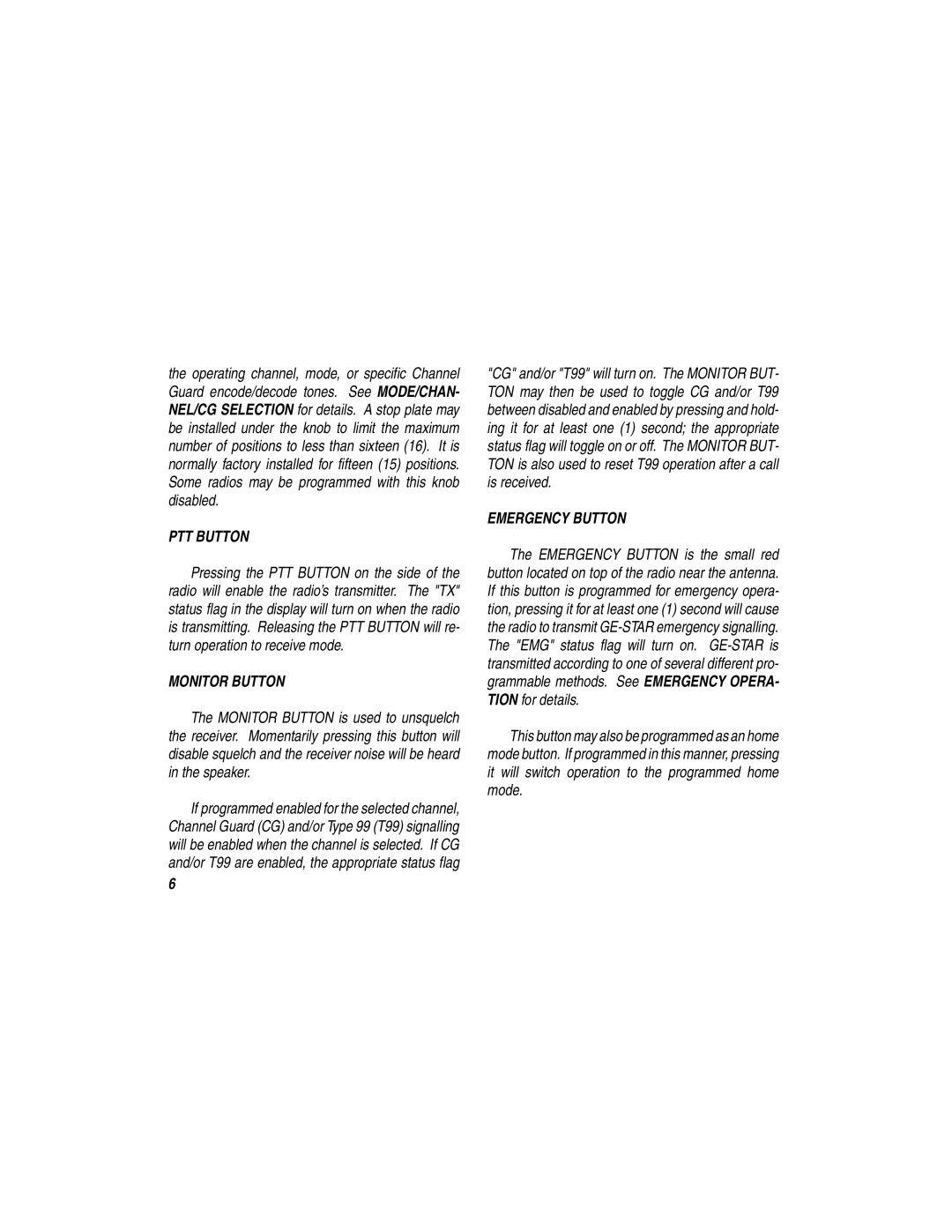the operating channel, mode, or specific Channel Guard encode/decode tones. See MODE/CHAN- NEL/CG SELECTION for details. A stop plate may be installed under the knob to limit the maximum number of positions to less than sixteen (16). It is normally factory installed for fifteen (15) positions. Some radios may be programmed with this knob disabled.
PTT BUTTON
Pressing the PTT BUTTON on the side of the radio will enable the radio’s transmitter. The "TX" status flag in the display will turn on when the radio is transmitting. Releasing the PTT BUTTON will re- turn operation to receive mode.
MONITOR BUTTON
The MONITOR BUTTON is used to unsquelch the receiver. Momentarily pressing this button will disable squelch and the receiver noise will be heard in the speaker.
If programmed enabled for the selected channel, Channel Guard (CG) and/or Type 99 (T99) signalling will be enabled when the channel is selected. If CG and/or T99 are enabled, the appropriate status flag
"CG" and/or "T99" will turn on. The MONITOR BUT- TON may then be used to toggle CG and/or T99 between disabled and enabled by pressing and hold- ing it for at least one (1) second; the appropriate status flag will toggle on or off. The MONITOR BUT- TON is also used to reset T99 operation after a call is received.
EMERGENCY BUTTON
The EMERGENCY BUTTON is the small red button located on top of the radio near the antenna. If this button is programmed for emergency opera- tion, pressing it for at least one (1) second will cause the radio to transmit
This button may also be programmed as an home mode button. If programmed in this manner, pressing it will switch operation to the programmed home mode.
6
